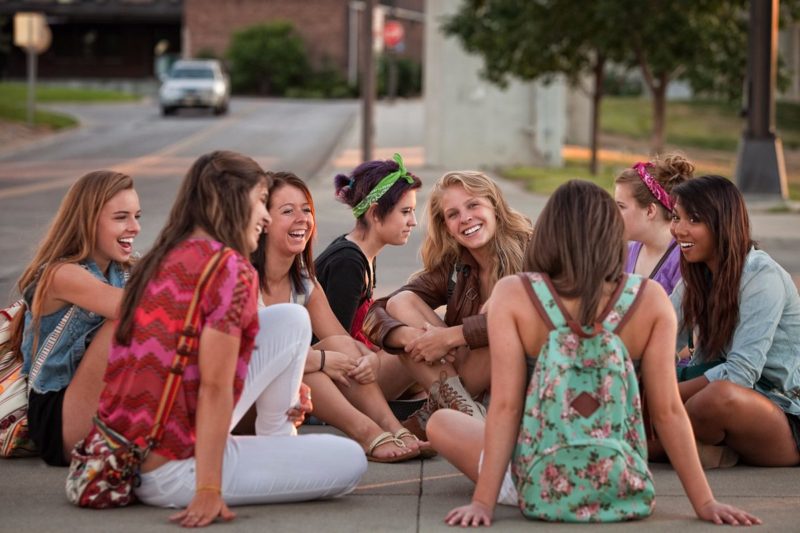Trump Is Changing the Way Girls View Their Bodies
“And even though I know the things he says about women aren’t true, I can’t help but feel disrespected and just kind of bummed out by it,” one girl told the New York Times.

Almost half of girls between the ages of 14 and 17 say that Republican presidential nominee Donald Trump’s comments about women have had an effect on the way they think about their bodies, according to a national poll conducted on behalf of the New York Times.
“That hits me hard when people like Trump say people who are skinnier than I am are too big,” Morgan Lesh, 15, told the outlet. “It makes me feel extremely insecure about myself.”
Trump has repeatedly come under fire for the way he talks about women, including comments about groping women seemingly without consent and public conversations about women’s appearances.
But that isn’t the only way the election season has affected the way young women think. Twenty-two percent of teenage girls surveyed said Democratic presidential nominee Hillary Clinton’s run has made them more likely to seek leadership positions, while 17 percent said it made them less likely to want to be leaders.
When asked the same questions about Trump’s candidacy, 15 percent of girls said his presence in the race made them want to be leaders, while 27 percent said it made them less likely to seek leadership positions.
Some teenage girls told the Times that Trump’s comments had made them interested in seeking leadership roles in order to challenge his portrayal of women. “It’s made me want to prove them wrong and show them that women aren’t what you’re saying they are and they can be leaders and they can be strong,” 15-year-old Jessica Griepenburg told the outlet.
None of the girls interviewed said they planned to run for office.
A 2015 study by American University’s Women & Politics Institute surveying male and female college students between the ages of 18 and 25 about their political aspirations found that women were less likely than men “to have considered running for office, to express interest in a candidacy at some point in the future, or to consider elective office a desirable profession.”
Lack of encouragement for women to run for political office and the failure of parents to socialize girls to think of politics as a viable career path were contributing factors, the study said.
Women are vastly underrepresented in U.S. political offices, holding just 19.4 percent of congressional seats, 24 percent of statewide executive seats, and 24.4 percent of seats in state legislatures.
Sarah Hamilton, 17, told the Times that while Clinton’s run for the White House has lead her to consider her own political ambitions and leadership potential, a Trump win would give her significant doubts.
“I really would feel like the leadership in my country doesn’t want me to succeed,” Hamilton said of a potential Trump victory on November 8. “And even though I know the things he says about women aren’t true, I can’t help but feel disrespected and just kind of bummed out by it.”
